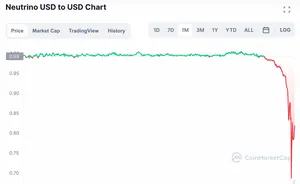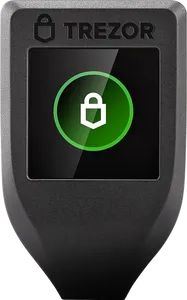Sadly, the collaborative and fun community art piece and social experiment was financialized almost immediately after the last pixels were placed, with several projects cropping up to sell portions of the canvas for crypto. One of the projects ended almost as quickly as it began, replacing all its NFT images with the "r/FUCKNFTS" portion of the canvas and rewriting the description to say, "Ok, I guess that was a bad move and a bad Joke. Please use Cryptos as decentralized money against states, not to sale dumb images on the internet. Love U Reddit, got U". Other projects, however, remain for sale.
Someone mints NFTs of r/place, because what's the point of collective artwork if someone can't profit off it
COVID-19 conspiracy theorist Robert Malone announces to trucker convoy his plans to dox more than 4,000 people using blockchain-based tech "so they can't take it down"
Federal authorities seize $34 million in Bitcoin from alleged seller of stolen account information
Scammer takes advantage of a platform's poor UX to steal several pricey Bored Ape NFTs
When the user confirmed the transaction, they transferred their three pricey apes to the scammer, receiving three worthless ones in return. NFT trader 0xQuit estimated the loss at around $587,000.
Amidst rumors of market manipulation, Waves' USD-based "stablecoin" loses peg, drops to $0.82
User loses £55,000 (~$72,000) to Trezor phishing email
The email in question appeared to be from Trezor, and claimed that users' funds were in jeopardy. It prompted them to download a new (fake) version of the Trezor wallet software, and when users entered their seed phrase to restore their wallet from a backup, it drained their crypto. "What a mug I am," wrote the affected user. "Had been building up my BTC for seven years and lost it in a few minutes' utter stupidity."
The Reddit post also included two follow-up edits, displaying the victim blaming that is common when users are hit with phishing scams and other attacks. The user wrote "Edit: yes I entered my keys, because I'm a twat Edit 2: a lot of people saying they'd never fall for it. I hope they're right."
- "I fell victim to the Trezor phishing scam" Reddit post on r/bitcoin
Attack on Inverse Finance results in a $15.6 million loss
Waves protocol Vires Finance loses $530 million after questionable withdrawals
Waves founder Aleksandr Ivanov blamed the withdrawals on outsiders. However, various crypto researchers believe they have identified Ivanov as the one behind wallets involved in the mass withdrawals. These allegations were later repeated by the FTX bankruptcy estate in an adversary lawsuit against Ivanov.
- "Waves founder’s role in lost $530m raises questions about who’s to blame", DL News
- Adversary case by FTX vs. Aleksandr Ivanov.
Taiwanese singer Jay Chou has Bored Ape stolen
The theft prompted security researchers at Check Point Research to investigate what ended up being a serious bug in Rarible, where malicious NFTs could execute JavaScript and trick users into signing a contract that would then empty their wallets.
- "Taiwanese star Jay Chou says Bored Ape NFT has been stolen by 'phishing website'", South China Morning Post
Class action lawsuit filed against "Let's Go Brandon" coin creators for alleged pump-and-dump
De Ford has named the LGB coin creators in the suit, as well as NASCAR, and promoters like Brandon Brown and Candace Owens.









